Anti-counterfeit
Jumia cracks down on selling counterfeit and infringing goods, and is committed to providing African buyers with a trustworthy shopping experience, promoting the sustainable and healthy development of the platform and sellers, and creating an honest market environment.
Selling counterfeit and infringing products reaches the platform's red line. Once such behavior is verified, the seller will be seriously punished, including but not limited to SKU delisting, fine, shop delisting, etc.
1. What are infringing products?
Infringing products (also known as "counterfeits") include:
● Duplicates not authorized by the brand. These products make profits by counterfeiting branded products and infringing upon intellectual property rights (such as patent, copyright, trademark, design, etc.);
● Counterfeits with slight differences from the originals, such as changing the spelling of the brand name, changing the logo, design, brand elements, etc.;
● Original product with the trademark of other brands
● Refurbished products must go through the application procedures before getting listed. Otherwise, a punishment will be imposed according to the anti-infringement policy.
Duplicate:
Counterfeit
Original product with the trademark of other brands
Special note:
If sports products, clothing products with the name of the sports team, such products will be flagged as counterfeit.
For exemple: product images or titles with football team logos
2. What does infringement involve?
1) Trademark infringement
Trademark right: It indicates the exclusive right to the registered trademark, which distinguishes one's goods from other people's goods
Trademarks include words, graphics, letters, numbers, three-dimensional logos, color combinations, and sounds
Infringement: Unauthorized use of a trademark identical or similar to a registered trademark on the same or similar goods, causing confusion
Example: Jumia's trademark belongs to Jumia Company. Using Jumia's trademark without Jumia's permission is considered an infringement.
2) Copyright infringement (authorship)
Copyright: The legal right of the copyright owner to a work.
Works include: computer programs, literary works, musical works, photographs, games, movies
Infringement: The act of using relevant work for profit without the consent of the copyright owner
For example, a seller took a photo of the product and put a watermark on it. Other sellers copy this photo and use it for their goods being sold, which violates the copyright of the photo owner.
3) Patent infringement
Patent: An exclusive right to an invention that cannot be used by others without permission
It includes: invention, utility model and appearance design patents
Infringement: Unauthorized production and operation of the protected patents
3. How does Jumia spot counterfeits
● Check the items that are being listed or have been listed;
● Randomly inspect the shipped goods;
● Review the reported counterfeits and infringing products;
● Check the returned SKUs.
4. Jumia's punishment on selling counterfeit and infringing products
● SKU delisting: Once any counterfeit is found, it will be delisted immediately
● Fine:
If the SKUs are found to be counterfeit and infringing products in the QC link before listing, no fine is imposed;
If SKUs are found to be counterfeit and infringing products after listing. Each shop will be imposed a fine of 200 USD per week.
NG's shop A created an SKU XX in WK20, which is suspected of infringement, but it failed to pass QC, so no fine will be incurred.
One counterfeit was found from the listed SKUs of NG's shop A in WK20. This shop will be fined 200 USD two weeks later.
Twenty listed SKUs of NG's shop A were found to be counterfeit in WK25. This shop will be fined 200 USD two weeks later.
If an order is placed and the SKUs are returned by the customer and judged by the QC department to be counterfeits, each SKU will be fined 200 USD.
Example:
NG's shop A will be fined 2*200 USD if it has generated an order for two counterfeit SKUs.
● Permanent closure: If a shop's infringement reaches the upper limit (4 times). The shop will be delisted by the platform, and all shops on each site under the name of its affiliated company will be permanently closed.
● In addition, the shop will be subject to penalties including, but not limited to:
(1) The Platform deducts the fines imposed on the shop;
(2) The relevant inventory (if there is any inventory) will be destroyed and will not be reimbursed, with the corresponding expenses borne by the seller;
(3) The counterfeits will be turned over to law enforcement agencies, with the losses borne by the seller;
(4) Bring legal action against the seller (selling counterfeit may also lead to criminal action).
5. How do sellers prevent and deal with counterfeit and infringing products?
● Before listing SKUs:
(1) Carefully read Jumia's rules on counterfeit and infringing products;
(2) Carefully identify the SKUs to avoid listing counterfeits;
(3) Purchase items through formal channels. If you purchase branded products, you need to obtain brand distribution authorization and other relevant documents from the supplier.
● When listing SKUs:
(1) Strictly follow Jumia's listing rules;
(2) If it is a branded product, choose the corresponding brand and do not list the SKU as Generic. At the same time, upload the written authorization of the brand;
● After listing SKUs: regularly check the SKUs. If any counterfeit is found, it shall be delisted immediately.
6. How to avoid listing infringing products?
- Do not list unlicensed brands
- Do not use a brand's trademark without permission
- Do not list copycat products, such as an SKU with a confusing trademark like "Lewis Vitton"
- If you are selling non-brand products, do not fix any brand labels
- Make sure that your brand products come from the brand product distributors or authorized distributors
7.How does the Platform inform you that the SKU is found to be counterfeit?
For the listed SKUs, if a counterfeit is found, the Platform will send a notification to your registered email address on Tuesday of the second week.
The subject of the email: Jumia's Notice Regarding Suspected Counterfeit Products
The screenshot of the email is shown below:
Screenshot of email attachment:
8.How to appeal
If you have received an email notifying you that your product has been delisted due to suspected counterfeit infringement, you must pay great attention to it.
If it is indeed an infringing product, please check all the products and timely delist the risky product from the shop to prevent them from being found again;
If the product is confirmed to be non-infringing, the seller can provide documentation for exemption through RAC. The sellers shall provide the following documents (indispensable) for exemption according to their conditions:
| You are the brand owner, you need to provide | You are the official distributor of the brand, you need to provide | Your products are purchased from official channels, you need to provide |
|---|---|---|
| * Business License* Brand Registration Certificate* Product design drawing* Difference between the product and the brand product | * Business License* Brand Distribution Authorization*Statement of Authenticity of Authorization | * Brand Distribution Authorization* Purchase invoice valid for 180 days, with purchase quantity same or close to the inventory |
Statement: Jumia attaches great importance to cracking down on counterfeit and infringing products. Jumia does not rule out the immediate and permanent termination of any account (or any related account) that sells counterfeit products again, and will cooperate with the legal authorities in the relevant investigation.
9.Value-added services
Jumia can offer a value-added service to you when you are unsure if the product you wish to list is infringing.
Click here to view the quote.
Click here to submit your application.
Jumia cracks down on selling counterfeit and infringing goods, and is committed to providing African buyers with a trustworthy shopping experience, promoting the sustainable and healthy development of the platform and sellers, and creating an honest market environment.
Selling counterfeit and infringing products reaches the platform's red line. Once such behavior is verified, the seller will be seriously punished, including but not limited to SKU delisting, fine, shop delisting, etc.
1. What are infringing products?
Infringing products (also known as "counterfeits") include:
● Duplicates not authorized by the brand. These products make profits by counterfeiting branded products and infringing upon intellectual property rights (such as patent, copyright, trademark, design, etc.);
● Counterfeits with slight differences from the originals, such as changing the spelling of the brand name, changing the logo, design, brand elements, etc.;
● Original product with the trademark of other brands
● Refurbished products must go through the application procedures before getting listed. Otherwise, a punishment will be imposed according to the anti-infringement policy.
Duplicate:
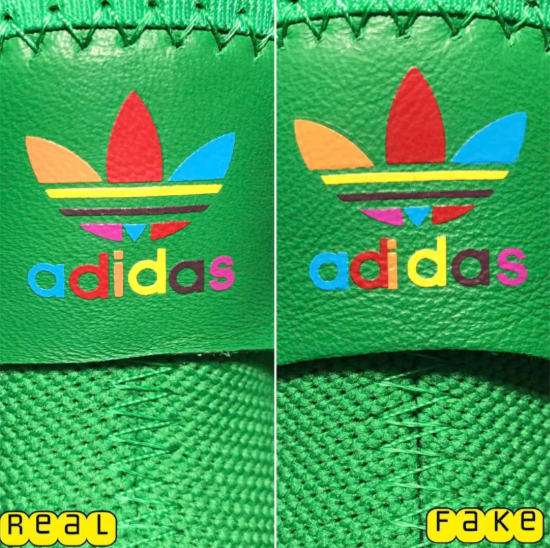
Counterfeit
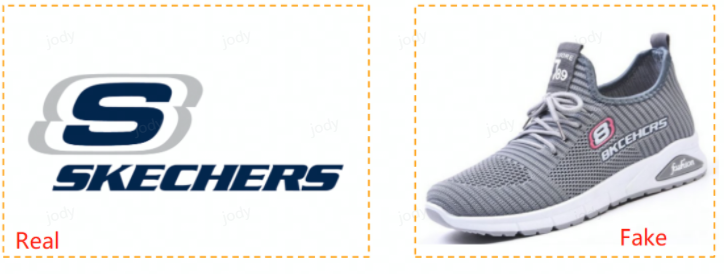
Original product with the trademark of other brands
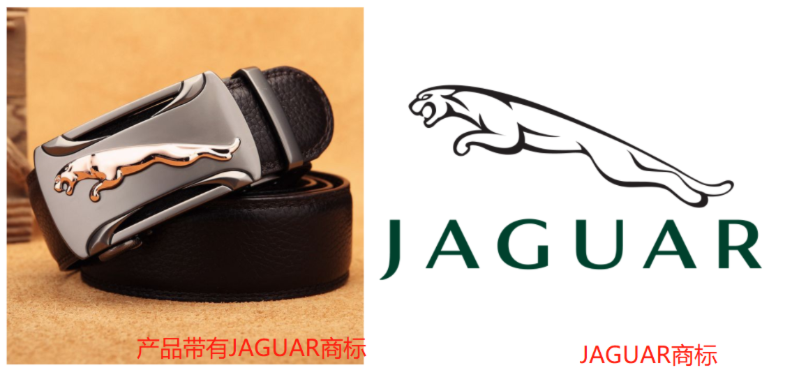
Special note:
If sports products, clothing products with the name of the sports team, such products will be flagged as counterfeit.
For exemple: product images or titles with football team logos
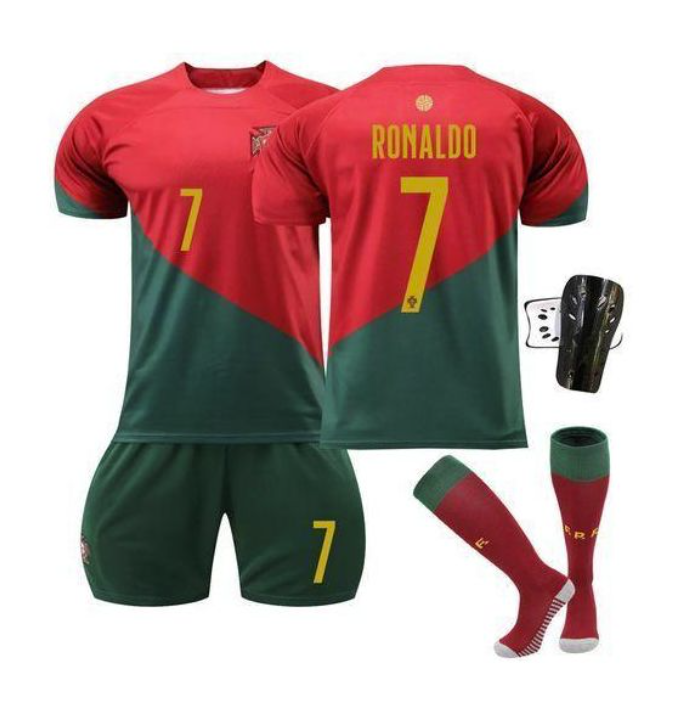
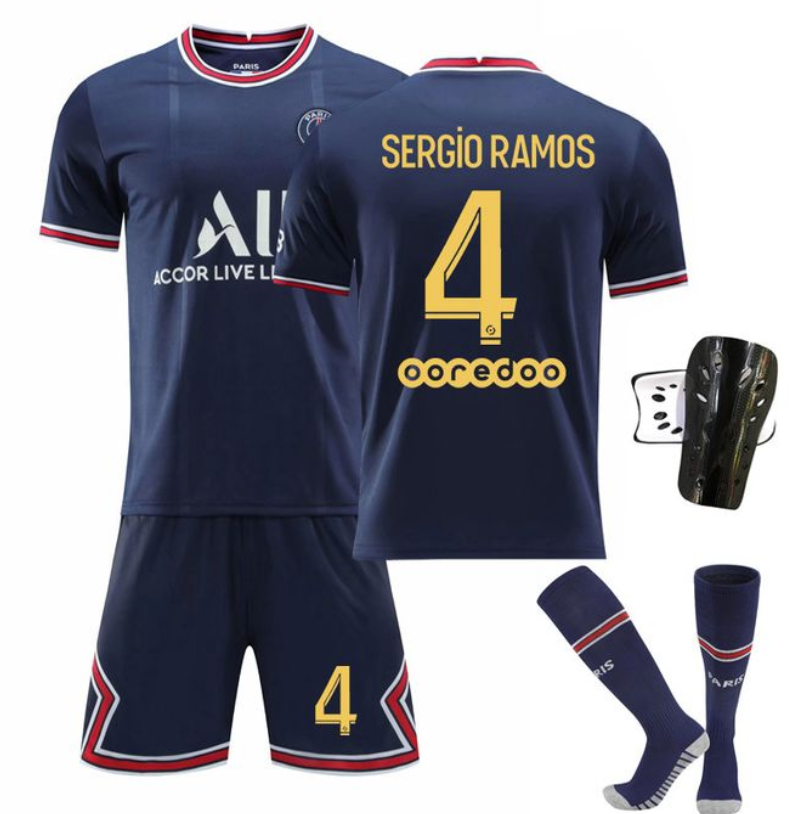
2. What does infringement involve?
1) Trademark infringement
Trademark right: It indicates the exclusive right to the registered trademark, which distinguishes one's goods from other people's goods
Trademarks include words, graphics, letters, numbers, three-dimensional logos, color combinations, and sounds
Infringement: Unauthorized use of a trademark identical or similar to a registered trademark on the same or similar goods, causing confusion
Example: Jumia's trademark belongs to Jumia Company. Using Jumia's trademark without Jumia's permission is considered an infringement.
2) Copyright infringement (authorship)
Copyright: The legal right of the copyright owner to a work.
Works include: computer programs, literary works, musical works, photographs, games, movies
Infringement: The act of using relevant work for profit without the consent of the copyright owner
For example, a seller took a photo of the product and put a watermark on it. Other sellers copy this photo and use it for their goods being sold, which violates the copyright of the photo owner.
3) Patent infringement
Patent: An exclusive right to an invention that cannot be used by others without permission
It includes: invention, utility model and appearance design patents
Infringement: Unauthorized production and operation of the protected patents
3. How does Jumia spot counterfeits
● Check the items that are being listed or have been listed;
● Randomly inspect the shipped goods;
● Review the reported counterfeits and infringing products;
● Check the returned SKUs.
4. Jumia's punishment on selling counterfeit and infringing products
● SKU delisting: Once any counterfeit is found, it will be delisted immediately
● Fine:
If the SKUs are found to be counterfeit and infringing products in the QC link before listing, no fine is imposed;
If SKUs are found to be counterfeit and infringing products after listing. Each shop will be imposed a fine of 200 USD per week.
NG's shop A created an SKU XX in WK20, which is suspected of infringement, but it failed to pass QC, so no fine will be incurred.
One counterfeit was found from the listed SKUs of NG's shop A in WK20. This shop will be fined 200 USD two weeks later.
Twenty listed SKUs of NG's shop A were found to be counterfeit in WK25. This shop will be fined 200 USD two weeks later.
If an order is placed and the SKUs are returned by the customer and judged by the QC department to be counterfeits, each SKU will be fined 200 USD.
Example:
NG's shop A will be fined 2*200 USD if it has generated an order for two counterfeit SKUs.
● Permanent closure: If a shop's infringement reaches the upper limit (4 times). The shop will be delisted by the platform, and all shops on each site under the name of its affiliated company will be permanently closed.
● In addition, the shop will be subject to penalties including, but not limited to:
(1) The Platform deducts the fines imposed on the shop;
(2) The relevant inventory (if there is any inventory) will be destroyed and will not be reimbursed, with the corresponding expenses borne by the seller;
(3) The counterfeits will be turned over to law enforcement agencies, with the losses borne by the seller;
(4) Bring legal action against the seller (selling counterfeit may also lead to criminal action).
5. How do sellers prevent and deal with counterfeit and infringing products?
● Before listing SKUs:
(1) Carefully read Jumia's rules on counterfeit and infringing products;
(2) Carefully identify the SKUs to avoid listing counterfeits;
(3) Purchase items through formal channels. If you purchase branded products, you need to obtain brand distribution authorization and other relevant documents from the supplier.
● When listing SKUs:
(1) Strictly follow Jumia's listing rules;
(2) If it is a branded product, choose the corresponding brand and do not list the SKU as Generic. At the same time, upload the written authorization of the brand;
● After listing SKUs: regularly check the SKUs. If any counterfeit is found, it shall be delisted immediately.
6. How to avoid listing infringing products?
- Do not list unlicensed brands
- Do not use a brand's trademark without permission
- Do not list copycat products, such as an SKU with a confusing trademark like "Lewis Vitton"
- If you are selling non-brand products, do not fix any brand labels
- Make sure that your brand products come from the brand product distributors or authorized distributors
7.How does the Platform inform you that the SKU is found to be counterfeit?
For the listed SKUs, if a counterfeit is found, the Platform will send a notification to your registered email address on Tuesday of the second week.
The subject of the email: Jumia's Notice Regarding Suspected Counterfeit Products
The screenshot of the email is shown below:
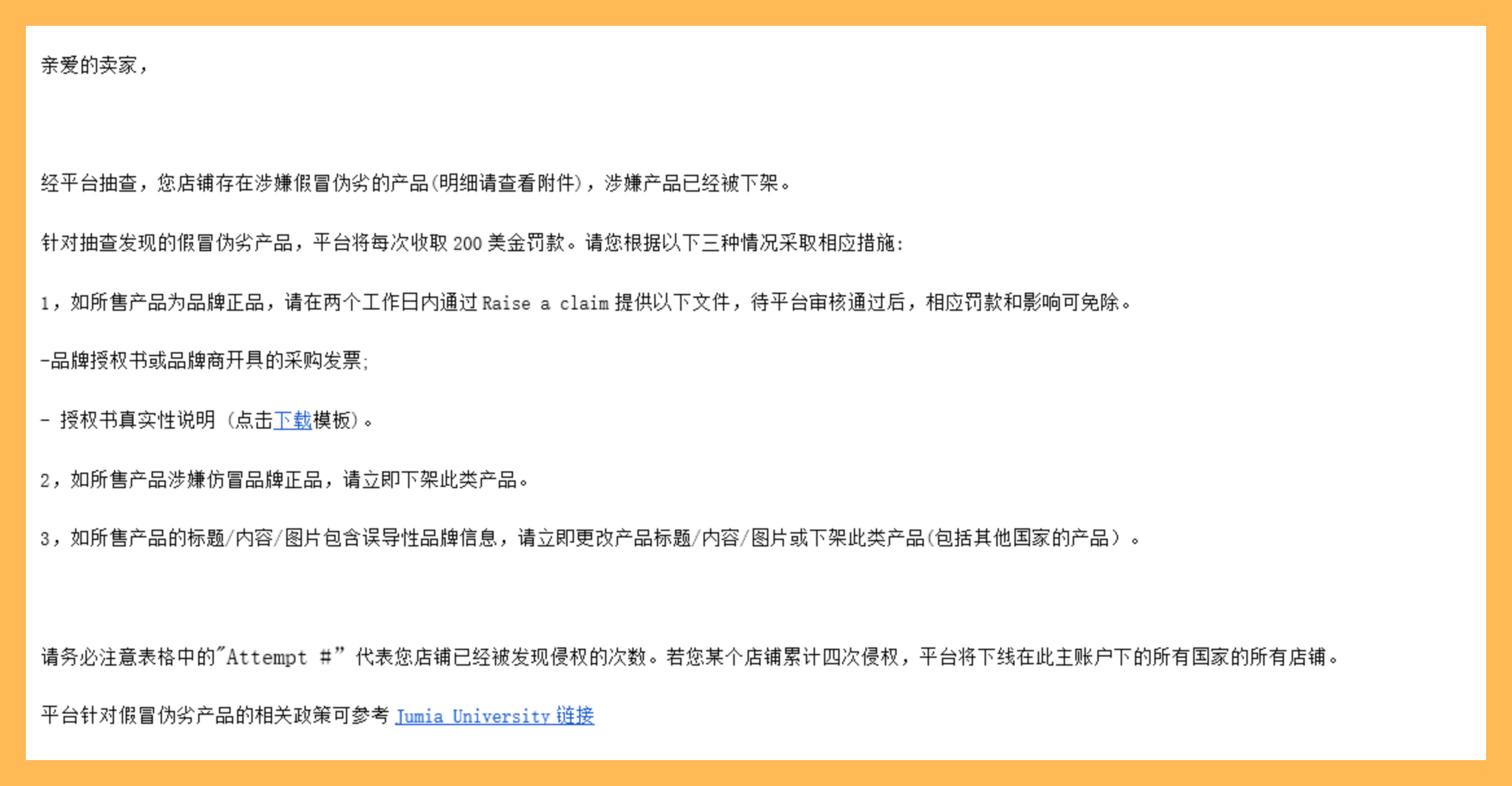
Screenshot of email attachment:

8.How to appeal
If you have received an email notifying you that your product has been delisted due to suspected counterfeit infringement, you must pay great attention to it.
If it is indeed an infringing product, please check all the products and timely delist the risky product from the shop to prevent them from being found again;
If the product is confirmed to be non-infringing, the seller can provide documentation for exemption through RAC. The sellers shall provide the following documents (indispensable) for exemption according to their conditions:
| You are the brand owner, you need to provide | You are the official distributor of the brand, you need to provide | Your products are purchased from official channels, you need to provide |
| ------------------------------------------------------------------------------------------------------------------------------------- | --------------------------------------------------------------------------------------------------------------------------------------------- | ----------------------------------------------------------------------------------------------------------------------------------- |
| * Business License* Brand Registration Certificate* Product design drawing* Difference between the product and the brand product
| * Business License* Brand Distribution Authorization*Statement of Authenticity of Authorization
| * Brand Distribution Authorization* Purchase invoice valid for 180 days, with purchase quantity same or close to the inventory
|
Statement: Jumia attaches great importance to cracking down on counterfeit and infringing products. Jumia does not rule out the immediate and permanent termination of any account (or any related account) that sells counterfeit products again, and will cooperate with the legal authorities in the relevant investigation.
9.Value-added services
Jumia can offer a value-added service to you when you are unsure if the product you wish to list is infringing.
Click here to view the quote.
Click here to submit your application.